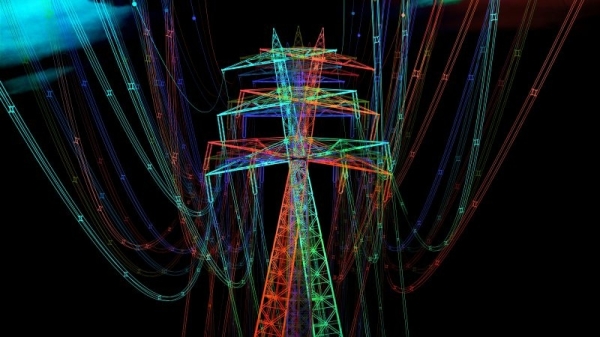Wanted: Europe’s energy sovereignty

The energy map is being redrawn as geopolitical tensions continue to rise. How much room for manoeuvre does Europe have to tackle this challenge?
The climate is getting rougher. In an increasingly uncomfortable geopolitical and geo-economical world order, Europeans must carefully balance their strategic goals of security of supply, climate protection and competitiveness. Access to raw materials and energy imports plays a key role here. Without it, we risk losing our economic prosperity and social peace.
The elephant in the room is China. Whether in Africa, Latin America or Central Asia, wherever the West goes in search of much-needed raw materials, China is already there. And China will stay there. Other global players are also intensifying their relations with the countries of the Global South. And they are adapting to new starting conditions. Until now, China has only seemed to be interested in raw materials and agricultural products in their unrefined state. These would simply be exported from the countries of origin to the People’s Republic for further processing. But now China is clearly acting on its trading partners’ wishes. The construction of a joint lithium-ion battery with a domestic company in Chile provides a taste of what’s to come.
Europe will have a difficult balancing act to contend with here in the future. We want to meet our own high social and ecological standards in other parts of the world too, and not least promote our own values. This is also important in the geostrategic race of our time. Still, we must avoid appearing to lecture other countries on how they should act. Because that immediately creates a reputation of neo-imperialism and provokes resentment towards us.
The interests of local communities are often different from those of national governments. While communities are concerned with the negative impacts of resource extraction on health and livelihoods, governments are more interested in the positive impacts on national budgets and foreign exchange. The EU must find its way through this field of tension. And it must also keep the big picture in mind. On the one hand, it is local actors who are demanding compliance with very ambitious environmental standards. National governments as the negotiating partners in international trade, on the other hand, often reject these claims as unwanted interferences. Moreover, in the Global South, such standards often have the reputation of being a disguised form of protectionism if made a requirement by trading partners. Getting a foot in the door here while at the same time meeting one’s own standards is by no means a given. Balancing this tension will rather be a difficult task for Europe in the years to come. This makes it all the more important to listen carefully and to understand the interests of the other side.
The countries of the Global South have no interest in taking sides. This attitude originates from their own convictions as well as their own interests. From a European perspective, this may be surprising and disappointing. But this will not change anything about it. Because the neutral stance of emerging and developing countries is likely to pay off in the future. If various potential trading partners are available, they can choose the best deal. And not only the price is likely to play a role here, but also the best offer for building up local industries and technology transfer.
When European heads of state visit the Global South, they still imply that it is now or never for the host countries to secure good trade relations – otherwise, Europeans would simply look elsewhere. At least, that is how it is often perceived there. This is a risky approach, not only because of Europe’s desire and need to maintain good relations with the Global South in view of the geostrategic tug-of-war. Such a patronising attitude is also likely to be at odds with the position that Europe finds itself in. Without external supplies of raw materials and energy, it will become really difficult for industrialised countries to maintain their industrial base and to compete in the development of new industries. After all, raw materials are needed to keep pace with innovation in the age of ecological transition.
Last but not least, a number of new partnerships in the energy sector are currently being sought and promised. Europe must really deliver on this and serve not only its own pressing interests but also those of its trading partners. What exactly this should look like requires an open exchange with them – at eye level.



